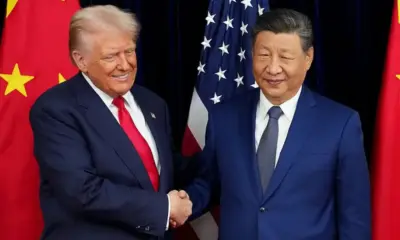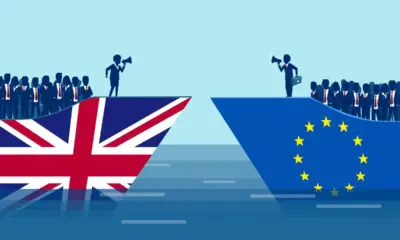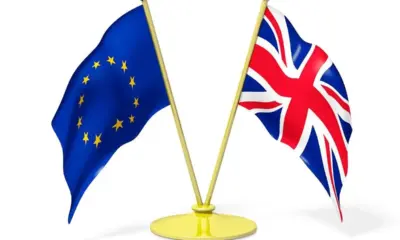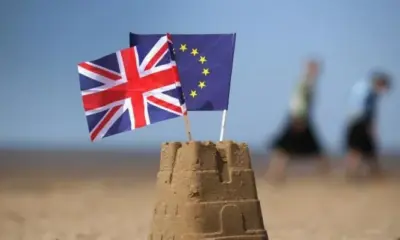Politics
UK–EU Relations Reignite Over Post-Brexit Trade Rules
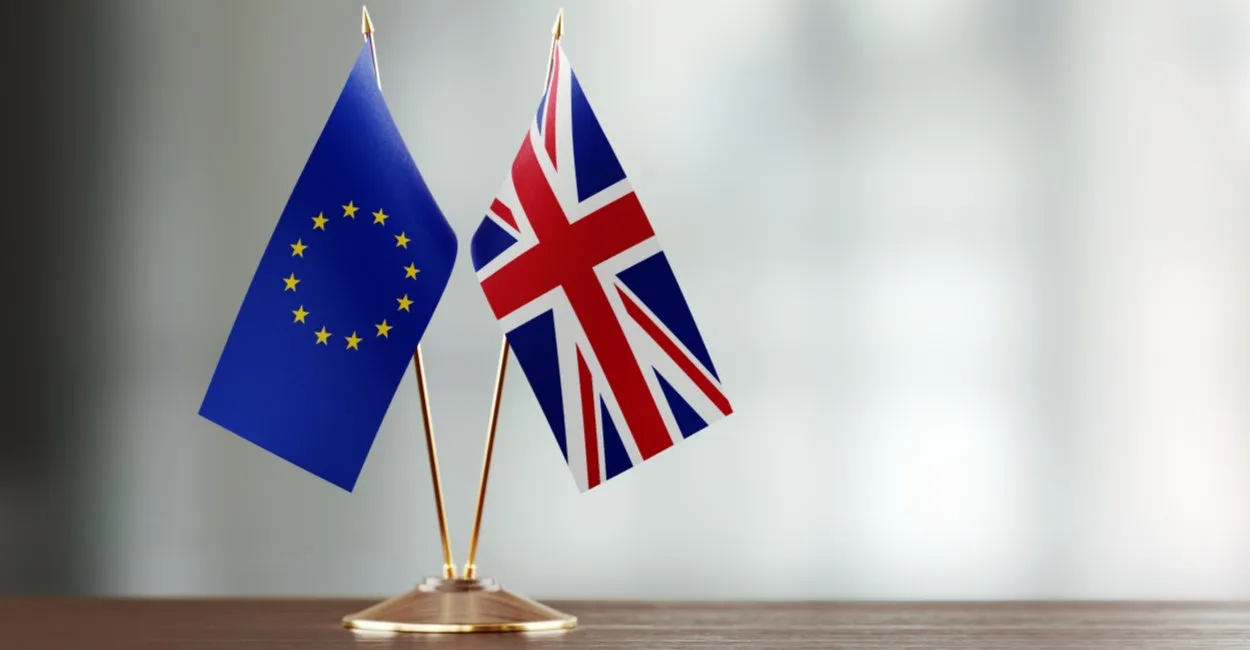
Tensions between the United Kingdom and the European Union have resurfaced as both sides reopen discussions on the trade rules established after Brexit. With new rounds of negotiations scheduled to begin in Brussels and London, policymakers are grappling with the complex balance between economic sovereignty and regulatory alignment. The renewed talks come at a time when businesses on both sides of the Channel are demanding greater clarity and stability after years of political and commercial uncertainty.
The Return of Trade Frictions
The current friction stems from the ongoing debate over the Northern Ireland Protocol and broader post-Brexit trade arrangements that have impacted cross-border commerce. British officials are seeking adjustments to reduce the burden of customs checks and paperwork for goods moving between Great Britain and Northern Ireland. The government argues that the existing framework undermines the integrity of the UK internal market and creates unnecessary barriers for domestic businesses.
The European Union, however, maintains that the trade rules were designed to protect the single market and ensure that goods entering Ireland meet EU standards. Brussels has expressed willingness to review certain technical aspects of the agreement but insists that the core principles of the protocol cannot be renegotiated entirely. This delicate diplomatic balance has reignited political tensions, with some observers warning that a lack of compromise could destabilize progress achieved since the original Brexit deal was finalized.
Economically, both regions have strong incentives to find a workable solution. The UK remains one of the EU’s largest trading partners, while European exporters rely heavily on British markets for automotive, pharmaceutical, and agricultural goods. A smooth trading relationship is essential to maintaining supply chains, investment confidence, and regional stability. Analysts suggest that the latest negotiations reflect a pragmatic shift on both sides, recognizing that cooperation is more beneficial than confrontation.
Economic Stakes and Industry Pressure
Businesses across Europe and the UK have been vocal about the need for predictable and efficient trade rules. Since the introduction of post-Brexit regulations, exporters have faced logistical delays, rising transportation costs, and complex compliance requirements. Small and medium-sized enterprises have been particularly affected, as many lack the resources to navigate multiple layers of bureaucracy.
Industry groups representing manufacturers, logistics firms, and retailers have urged both governments to prioritize streamlined customs procedures and harmonized standards. British Chambers of Commerce reports that nearly half of UK firms engaged in EU trade have experienced a decline in competitiveness since Brexit, largely due to administrative burdens. Meanwhile, European companies exporting to the UK face challenges related to product certification and market access.
The financial sector is also watching the talks closely. London remains a key global financial hub, and while the city has retained much of its influence, firms continue to seek regulatory equivalence that would allow for smoother operations across borders. The City of London Corporation has called for a structured dialogue with Brussels to restore confidence in cross-border financial services.
In addition to trade and finance, agriculture and energy are emerging as major topics of negotiation. The UK is pushing for greater flexibility in agricultural exports, while the EU emphasizes adherence to environmental and food safety standards. On energy, both sides are exploring ways to enhance cooperation on green technologies and carbon reduction goals, potentially turning trade talks into an opportunity for climate collaboration.
Political Repercussions and Diplomatic Strategy
For Prime Minister Rishi Sunak, the negotiations present both an opportunity and a risk. A successful resolution could reinforce his image as a pragmatic leader capable of rebuilding trust with Europe while safeguarding national interests. Failure, however, could invite criticism from opposition parties and fuel internal divisions within the Conservative Party, where hardline members continue to resist any perceived return to EU influence.
In Brussels, European officials are equally aware of the political sensitivities surrounding the issue. Many member states are eager to maintain a constructive relationship with the UK, particularly in areas such as security, defense, and research collaboration. However, there remains a strong commitment to protecting the integrity of the single market, meaning that concessions will be limited. The challenge lies in crafting an agreement that allows both sides to claim victory domestically while ensuring long-term economic stability.
Observers note that the diplomatic tone has softened compared to the tense atmosphere of earlier Brexit debates. The two sides are engaging in more technical discussions rather than political posturing, which could pave the way for incremental progress. Both London and Brussels appear to have accepted that cooperation, rather than confrontation, is essential to restoring business confidence and strengthening Europe’s post-pandemic recovery.
Conclusion
The revival of UK–EU trade talks marks a critical moment in the post-Brexit relationship. While disagreements persist, both sides understand the need for economic pragmatism and diplomatic balance. Businesses, investors, and workers on both shores are eager for predictability after years of political turbulence.
The outcome of these negotiations will shape not only trade flows but also the tone of future cooperation in areas such as technology, energy, and climate policy. For now, the message from both London and Brussels is one of cautious optimism, though success will depend on the ability to transform dialogue into durable policy.
As the talks progress, the world will be watching to see whether the UK and EU can move beyond past disagreements and forge a modern partnership built on trust, mutual respect, and shared economic goals.



